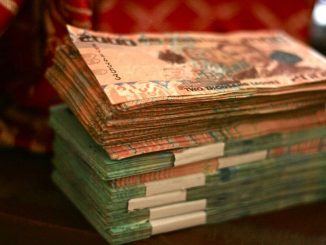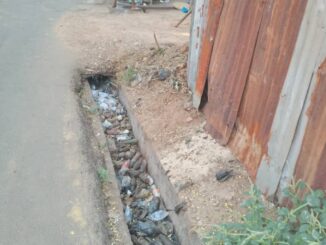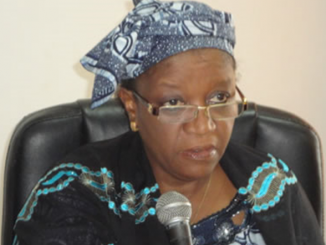
Ebola triggers caution in N.J.’s West African communities
CLICK THIS LINK FOR ORIGINAL REPORT FROM THE STAR LEDGER Newspaper of New Jersey :
If the Ebola virus were to arrive in New Jersey, it wouldn’t necessarily make its first appearance in a hospital emergency room.
Instead, it might show up in someone’s guest bedroom, courtesy of a visiting relative sleeping on the fold-out couch.
That puts New Jersey’s West African communities on the front lines in this country’s vigilance against the deadly virus.
Scattered throughout the state are pockets of people from Liberia, Sierra Leone, and Guinea, the three countries overwhelmed by an Ebola epidemic. (Nigeria was able to contain its relatively small outbreak.)
They have been trying to raise money to send supplies to their embattled homelands. In many cases, they have been supporting relatives back in Africa who’ve been impacted by mandatory quarantines.
At the same time, however, they said they’ve had to think about their own safety.
Emmett Trinity, president of the Liberian Community Association of North Jersey, said he and his friends have already been taking precautions against contagion. They don’t shake hands or give welcoming hugs to a visitor from the homeland, or any New Jersey neighbor who has returned from a trip there, he said.
Instead, they maintain that reserve until the traveler has made it past the 21-day incubation period for the virus.
“We let them know, ‘We’ve got our eyes on you – not in a demeaning way, or a negative way, but in a precautionary way,” he said. “They understand. We let them know, ‘Hey, this is a serious issue. This is not a game. This is not a joke.’”
That prudence is necessary, given the disease’s timetable: The Liberian traveler now hospitalized in Texas was healthy when he got on his flight out of Africa, and healthy when he handed in Dallas. It was only several days later that he developed symptoms.
Since then, his relatives have been placed – by court order – in quarantine.
New Jersey had a scare last weekend when a traveler from Liberia took sick on an international flight here. The flight was met by officials from the U.S. Centers for Disease Control and Prevention, who sent the man and his daughter to University Hospital for evaluation. The other passengers were screened as well.
The man’s illness was a minor one easily treatable, and unrelated to Ebola, state officials said.
Trinity said he and his fellow Liberian-Americans didn’t know the man’s identity, or where he went after he was released from the hospital.
Is the epidemic bad enough for local West Africans to tell relatives they’re not welcome here?
“It’s awkward,” said Leeroy Wilfred Kabs-Kanu, a United Nations representative for Sierra Leone who lives in Somerset.
West Africans have a welcoming culture, he said, one that makes them duty-bound to extend hospitality to any distant relative who might want to travel here to visit. Their culture defines “family” quite widely, producing an obligation to help a broad pool of relatives.
“We don’t say ‘No’ to someone who wants to visit,” said Kabs-Kanu, who also serves as editor of an international online newspaper covering the concerns of Sierra Leoneans.
“It means you are disowning them – and we don’t want them to feel that way,” he said.
New Jersey ranks fifth in the country for the number of foreign-born West Africans, according to the U.S. Census. Still, there numbers here are small: According to the most recent data, there are approximately 3,600 state residents of Liberian descent, nearly all of whom are located in Mercer, Burlington or Essex Counties. Immigrants from Sierra Leone live in Somerset, as well as Camden, Cherry Hill, Pennsauken, West Orange and East Orange, according to Kabs-Kanu.
Sierra Leoneans visit the United States to attend college, to get medical attention not available at home, and to visit their children who are in college. Since the outbreak of Ebola began earlier this year, however, the flow of visitors has turned to a trickle, he said.
Mostly that’s because transportation is difficult: Many international airlines have stopped flying out of the region.
The false alarm at Newark Liberty International Airport has community leaders concerned about backlash, said Trinity.
“The name ‘Liberia’ is all over the news – and not in a positive way,” he said. “So we’re concerned.”
Both the Sierra Leonean and Liberian communities have been trying to exert pressure on the World Health Organization to free up aid and supplies. The Liberian group held a gospel concert fundraiser late last month, and the Sierra Leone community has been selling yellow T-shirts proclaiming, “Help Kick Ebola Out of the World!”
Community organizer Foday Mansaray, who works with the Sierra Leonean residents of Somerset, has been distributing pamphlets provided by the N.J. Department of Health. It is titled, “Ebola Information for friends and family returning to New Jersey from West Africa.”
It includes standard public health information about the disease, plus some culture-specific advice such as, “Don’t eat or handle bush meat from wild animals brought back from Africa, (such as monkey, bats, forest antelope, chimpanzees, and gorillas.)”
It also urges anyone who is sick to call the local hospital before they go there so staff there can be alerted if there has been any recent travel to West Africa.
Both the Liberian and Sierra Leonean communities have been frustrated by what they see as the world’s nonchalance in responding to an unprecedented regional health crisis. The World Health Organization recently predicted that if current rates of contagion persist, 1.4 million people will be infected by early next year.
“It’s very painful. Our people are dying and help has been very slow,” said Kabs-Kanu. “We cannot cry enough.”
Kathleen O’Brien may be reached at [email protected]





Leave a Reply